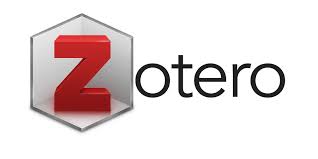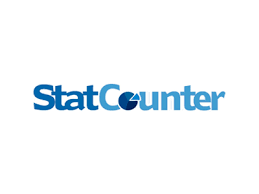Kemampuan Pemahaman Konsep Matematika Siswa Melalui Pendekatan Pendidikan Matematika Realistik Indonesia (PMRI) pada Pembelajaran Matematika di Kelas VIII SMP PGRI 1 Betung
DOI:
https://doi.org/10.29240/ja.v2i2.2236Keywords:
Concept Understanding, Mathematics, Indonesian Realistic Mathematics Education ApproachAbstract
This study aims to determine the ability of students to understand mathematical concepts through the Indonesian Realistic Mathematics Education (PMRI) approach to learning mathematics in class VIII of SMP PGRI 1 Betung. This research is a "quasi experiment" category of one shot case study. In this study, there was only one sample class, namely the class that became the experimental class, namely class VIII.5 consisting of 35 students, which was carried out without a control class or comparison class. The data collection technique used in this research is the test method, and documentation. The results of this study indicate that the students' ability to understand mathematical concepts after the application of the Indonesian Realistic Mathematics Education Approach (PMRI) at SMP PGRI Betung is categorized as good, this is shown by the results of the average score. -The average final test of students' ability to understand mathematical concepts was 76.8.
Downloads
References
Herawaty, D., & Widada, W. (2018). The Influence of Contextual Learning Models and the Cognitive Conflict to Understand Mathematical Concepts and Problems Solving Abilities. https://doi.org/10.2991/icomse-17.2018.17
Herawaty, D., Widada, W., Nugroho, K. U. Z., & Anggoro, A. F. D. (2019). The Improvement of the Understanding of Mathematical Concepts through the Implementation of Realistic Mathematics Learning and Ethnomathematics. https://doi.org/10.2991/icetep-18.2019.6
Ma’Rifah, N., Widada, W., Aida, A., Yulfitri, Y., & Effendi, J. (2019). The students’ mathematics understanding through ethnomathematics based on kejei dance. Journal of Physics: Conference Series. https://doi.org/10.1088/1742-6596/1318/1/012079
Nugroho, K. U. Z., Widada, W., Zamzaili, & Herawaty, D. (2019). The ability to solve mathematical problems through youtube based ethnomathematics learning. International Journal of Scientific and Technology Research.
Suharto Suharto, W. W. (2018). The Cognitive Structure of Students in Understanding Mathematical Concepts. Advances in Social Science, Education and Humanities Research, 295, 65.
Trianto. (2010). Mendesain Model Pembelajaran Inovatif-Progresif. Jakarta: Kencana Prenada Media Group.
Widada, W., Herawaty, D., & Lubis, A. N. M. T. (2018). Realistic mathematics learning based on the ethnomathematics in Bengkulu to improve students’ cognitive level. Journal of Physics: Conference Series. https://doi.org/10.1088/1742-6596/1088/1/012028
Widada, W., Herawaty, D., Mundana, P., Agustina, M., Putri, F. R., & Anggoro, A. F. D. (2019). The REACT strategy and discovery learning to improve mathematical problem solving ability. Journal of Physics: Conference Series. https://doi.org/10.1088/1742-6596/1318/1/012081
Yanuarti, E. (2016a). Analisis Sikap Kerjasama Siswa dalam Proses Pembelajaran Pendidikan Agama Islam melalui Cooperative Learning. Media Akademika, 31(4), 613.
Yanuarti, E. (2016b). Pendidikan Islam Dalam Perspektif Filsafat Idealisme. BELAJEA: Jurnal Pendidikan Islam. https://doi.org/10.29240/BJPI.V1I2.108
Yanuarti, E. (2016c). STUDI KOMPARATIF PRESTASI SISWA (Mengikuti dan tidak Mengikuti Ekstrakurikuler ROHIS). AL-ISHLAH, Vol XIV.
Yanuarti, E. (2018). Pemikiran Pendidikan Ki. Hajar Dewantara dan Relevansinya Dengan Kurikulum 13. Jurnal Penelitian. https://doi.org/10.21043/jupe.v11i2.3489
Yustisia, P. (2010). Panduan Lengkap KTSP. Yogyakarta: Putstaka Yustia.
Downloads
Published
Issue
Section
Citation Check
License
Authors who publish with ARITHMETIC: Academic Journal of Math agree to the following terms:
- Authors retain copyright and grant the journal right of first publication with the work simultaneously licensed under a Creative Commons Attribution-NonCommercial-ShareAlike 4.0 International License (CC BY-NC-SA 4.0) that allows others to share the work with an acknowledgment of the work's authorship and initial publication in this journal.
- Authors are able to enter into separate, additional contractual arrangements for the non-exclusive distribution of the journal's published version of the work (e.g., post it to an institutional repository or publish it in a book), with an acknowledgment of its initial publication in this journal.
- Authors are permitted and encouraged to post their work online (e.g., in institutional repositories or on their website) prior to and during the submission process, as it can lead to productive exchanges, as well as earlier and greater citation of published work (See The Effect of Open Access).







